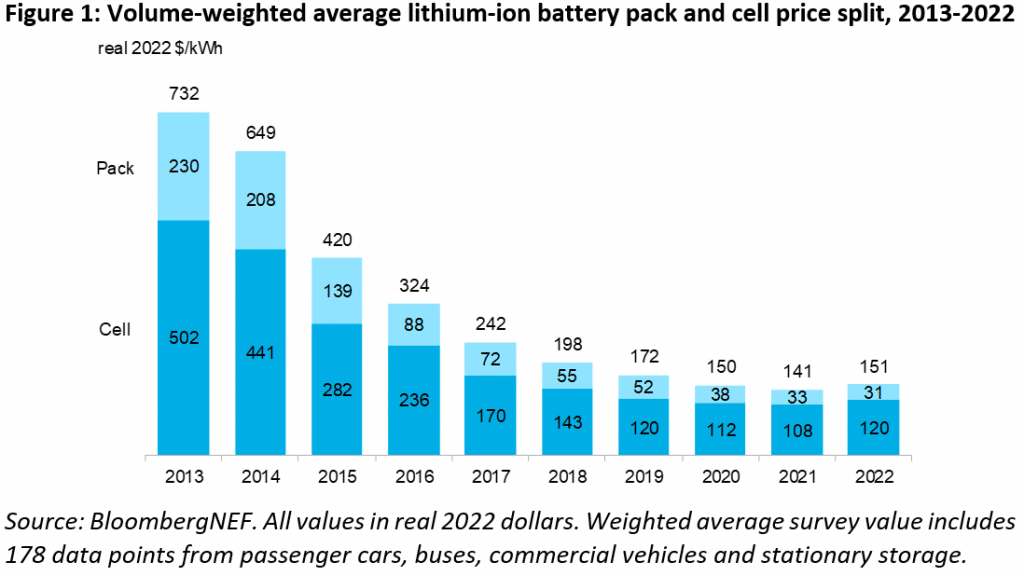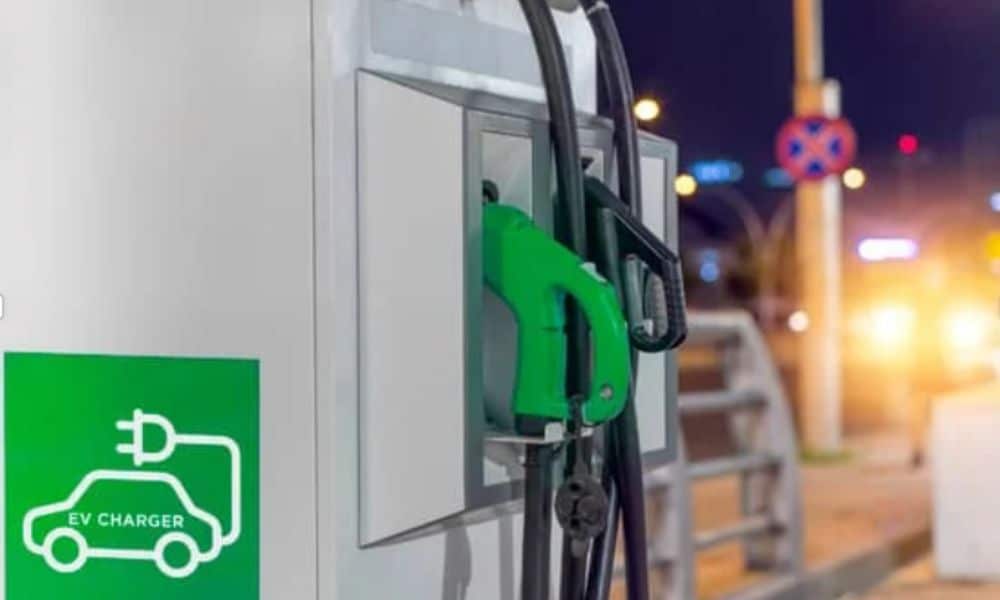Electric vehicles (EVs) have been around for decades but have only recently become mainstream. In recent years, there has been a surge in interest in EVs, driven by concerns about climate change and the rising cost of gasoline. However, some people have questioned whether electric vehicles in Australia are the future of automotive.
There are several challenges facing EVs. One of the biggest challenges is cost. EVs are typically more expensive than gasoline-powered vehicles. Another challenge facing EVs is limited availability. There are currently fewer EV models than gasoline-powered models. Additionally, the gas station network is more well-developed than the charging infrastructure for EVs.
If you’re interested in embracing sustainable energy beyond electric vehicles, consider exploring solar options with Energy Matters. Get FREE solar quotes to discover how renewable energy can play a pivotal role in shaping a greener and more sustainable future.
In this blog, we will explore the advantages and downsides of electric vehicles and the larger context in which they operate to provide a comprehensive understanding of their role in the future of transportation.
Attention, automobile enthusiasts! Are you prepared to embark on an electrifying journey with your next car? Brace yourself for a groundbreaking opportunity that will revolutionise your driving experience. Don’t miss out on this exclusive chance to book a test drive in one of your neighbourhood’s latest and most cutting-edge electric vehicles (EVs)!
So, what are you waiting for? Seize this moment to revolutionise your driving experience. Be a trendsetter, an innovator, and a protector of our planet. Book your test drive today and prepare to join the growing community of electric vehicle enthusiasts. The road to a sustainable and electrifying future awaits – don’t miss your chance to be part of it!
Are electric cars the future?
Electric vehicles (EVs) are becoming increasingly popular, and many analysts believe they will eventually replace carbon-emitting vehicles. However, some challenges need to be addressed before EVs can become mainstream.
One of the biggest challenges is the cost of batteries. The price of cobalt, a key material in batteries, has been rising in recent years. Mining for rare earth elements, which are also used in batteries, can create significant environmental damage.

Another big challenge is the availability of charging infrastructure. While the number of public charging stations is growing, finding a charger in some areas still needs to be improved. Additionally, charging an EV can take much longer than filling up a gas tank.
Despite these challenges, there are many advantages to EVs. EVs are more efficient than gas-powered cars, meaning they can travel further on a single charge. Additionally, EVs produce zero tailpipe emissions, which can help to improve air quality.
Another advantage of EVs is that they are becoming more affordable. The cost of batteries is falling, and the number of EV models on the market is growing. Additionally, many governments offer incentives to purchase EVs.


Another big challenge is the availability of charging infrastructure. While the number of public charging stations is growing, finding a charger in some areas still needs to be improved. Additionally, charging an EV can take much longer than filling up a gas tank.
Despite these challenges, there are many advantages to EVs. EVs are more efficient than gas-powered cars, meaning they can travel further on a single charge. Additionally, EVs produce zero tailpipe emissions, which can help to improve air quality.
Another advantage of EVs is that they are becoming more affordable. The cost of batteries is falling, and the number of EV models on the market is growing. Additionally, many governments offer incentives to purchase EVs.
Are you ready to embrace a greener future by installing an electric vehicle (EV) charger? Imagine the convenience of having your own charging station, allowing you to power up your EV whenever it’s convenient for you. You can contribute to a cleaner environment and combat climate change by installing an EV charger at your home or business. Energy Matters‘ trusted local installers are ready to provide you with a personalised quote tailored to your specific needs.
Don’t wait any longer; request your quote today and be part of the EV charging revolution!
Opportunities for electric cars
One of the biggest opportunities for EVs is in the urban mobility market. EVs are well-suited for city driving because they are quiet, efficient, and require low range. Additionally, EVs can be used in car-sharing programs, which can help to reduce traffic congestion and air pollution.
Another opportunity for EVs is in the commercial vehicle market. Electric trucks and buses are becoming more common, and they can help reduce transportation emissions.
Electric vehicles are still the future of the automotive industry. The shift toward clean, sustainable transportation is not only driven by environmental concerns but also by technological advancements, government policies, and consumer preferences. While challenges exist, ongoing research, infrastructure, and affordability investments steadily push EVs closer to mainstream adoption. As the automotive industry continues to evolve, electric vehicles will play a crucial role in shaping the future of mobility.

Challenges and hurdles
While EVs have made significant strides, several challenges still need to be addressed:
Range anxiety: Concerns about the range of EVs and the availability of charging infrastructure can deter potential buyers. However, investments in charging networks are expanding, alleviating some of these concerns.
Initial cost: EVs tend to have a higher upfront cost than traditional vehicles, primarily due to battery expenses. However, this cost differential gradually decreases as technology advances and production scales up.
Charging infrastructure: Although charging infrastructure is improving, it must catch up to the convenience of refuelling at traditional gas stations. Faster charging and more extensive coverage are needed for widespread EV adoption.
Battery recycling: The disposal and recycling of lithium-ion batteries pose environmental challenges. Developing sustainable recycling methods is crucial to minimise the ecological impact of EVs.
Summary and key points to become mainstream
The rise of electric vehicles
Electric vehicles have experienced significant growth and development in recent years. Here are the several factors that have contributed to this rise:
Environmental concerns: With growing concerns about climate change and air pollution, governments worldwide are implementing stricter emission regulations. This has accelerated the shift towards cleaner transportation options, including EVs.
Technological advancements: Battery technology advancements have improved EV range, charging infrastructure, and affordability. EVs are becoming more practical and accessible to a broader range of consumers.
Consumer demand: Many consumers are now more conscious of their environmental footprint and are increasingly interested in sustainable transportation options. EVs offer a more eco-friendly alternative to traditional internal combustion engine (ICE) vehicles.
Government incentives: Various governments have introduced incentives and subsidies to promote EV adoption. These incentives can include tax credits, rebates, and the expansion of charging networks.
Read more about electric vehicles
- Everything You Need to Know About EVs: Buying, Owning and Charging an Electric Vehicle
- Is Getting an Electric Vehicle Worth it in 2023?
- The Electric Vehicle Revolution Down Under: Are EVs Worth It in Australia?
- EV Challenges: How Do I Charge My Electric Vehicle in an Apartment?
- Rising Tide of Sustainability: Electric Vehicles Capture 8% Market Share in May, Reflecting Growing Consumer Interest
Going solar
Are you looking to save money on your electricity bills and reduce your carbon footprint? Solar energy is the perfect solution! Energy Matters can help you get up to 3 FREE quotes from pre-qualified and vetted solar firms in your area.
Energy Matters has been a leader in the renewable energy industry since 2005 and has helped over 40,000 Australian households in their journey to energy independence. With Energy Matters, you can be sure you’re getting the best possible deal on solar energy. We only work with reputable solar firms with a proven track record of delivering high-quality solar systems.
Updated on January 2024













































